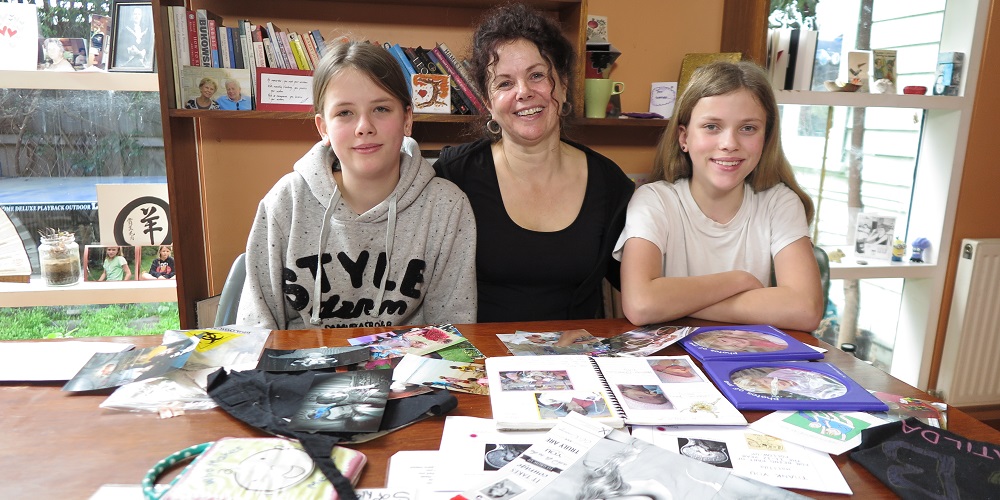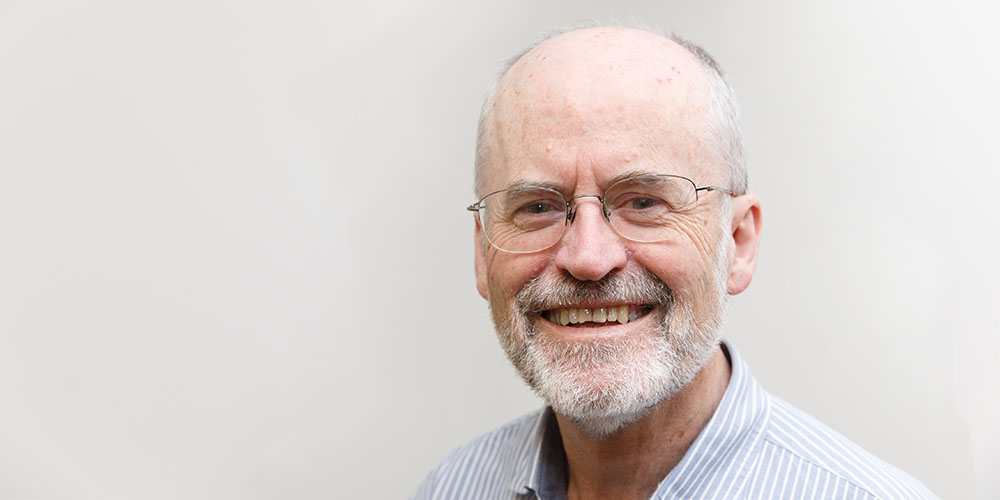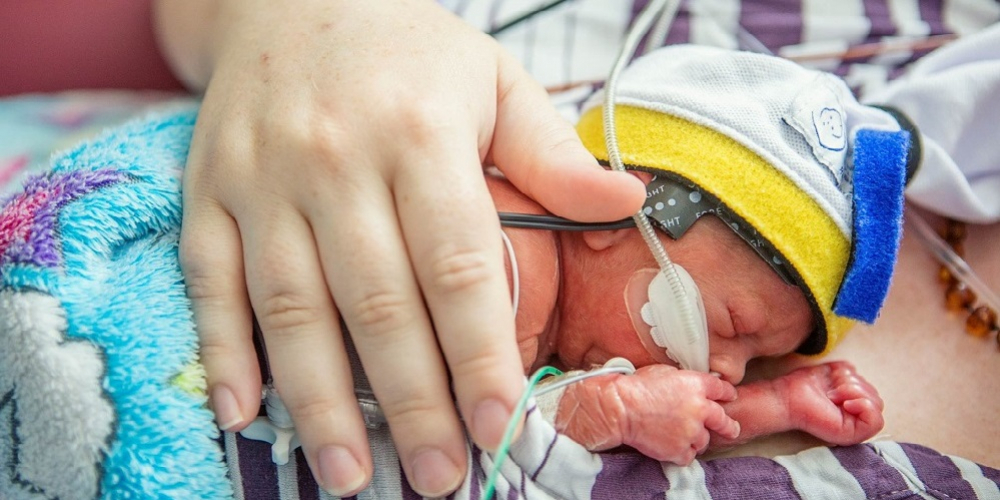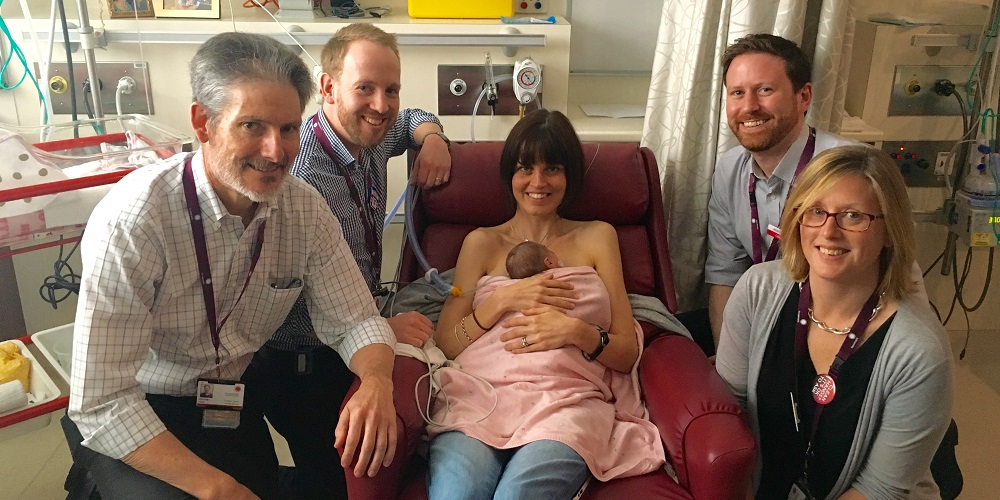
New research has found that caffeine given to very preterm babies in their first weeks of life significantly improves their long-term breathing ability at 11 years of age.
Its findings are particularly significant given the high risk of long-term lung damage preterm babies face, associated with their early birth.
The research has been published in the prestigious American Journal of Respiratory and Critical Care Medicine today (14 July) and looked at lung development in children at age 11 who were born very early and were at high risk of breathing problems after birth.
The study, led by the Royal Women’s Hospital, followed 142 children who were born weighing less than 1251 grams at birth. Their lung function, or breathing ability, was assessed at 11 years of age.
Lead author Professor Lex Doyle from the Women’s, the University of Melbourne and Murdoch Childrens Research Institute, said caffeine worked to stimulate breathing in very preterm babies, but doctors wanted to know if this led to long-term benefits for children.
“The lungs of premature babies haven’t fully formed when they are born and they are at high risk of long-term respiratory problems,” he said. “We have seen short-term benefits from caffeine in the first weeks after these premature babies are born. Caffeine stimulates their breathing, reduces the amount of time they need to be on ventilators, and reduces their risk of lung injury or abnormal lung development.”

In the current study, the research team, including partners the Royal Children’s Hospital and the Murdoch Childrens Research Institute, tested how well the air flows in and out of the lungs when the children were 11 years of age. Children who had been treated with caffeine in the first weeks after birth had less blockage to the breathing tubes in their lungs than those who had not been treated with caffeine.
This is important because the lungs continue to grow until the early 20s, and then there is a gradual decline in breathing ability. In most people the decline in breathing ability is not a concern, but if lung growth is impaired in early life, some people may later develop breathing problems in adulthood.
This latest paper follows on from a recent large study into preterm babies, which has found early caffeine treatment also has long-term benefits to their thinking ability and movement skills.
“It is important we follow the children in this study long term, as the challenge with preterm babies is we often see interventions deliver early benefits which do not continue into the long-term,” Prof Doyle said. “Moreover, unexpected adverse problems sometimes arise with longer follow-up, and we need to know about these to balance the risks versus the benefits of treatment. Most importantly, no negative effects to health have been detected from early caffeine treatment so far.”
Meredith Capp’s twins Sophie and Tilly Snowdon were two children who were signed up to the study when they were born early at 25 weeks in 2004. The pair spent six months in neonatal intensive care and Sophie in particular had trouble with her lung development, requiring intubation for a month longer than her sister.
“When Sophie was younger, it was noticeable at times that she had some trouble with breathing control. She would breathe in odd places,” Ms Capp said.
“When they were younger and playing hide and seek with their friends, the friends would say you could always tell where Sophie and Tilly were because you could hear them breathing.”
Now 13, the twins show almost no signs of breathing difficulty – none at all for Tilly and very occasionally for Sophie – and Ms Capp said the girls were proud of their involvement in the study.
“I think it’s great to know that the girls were part of something pioneering, part of something special,” Ms Capp said.
“This longitudinal research is so important as it influences the treatment of babies born today.”
If funding can be sourced, researchers would like to reconnect with the study group when they reach adulthood to see if the benefits of caffeine on the lung continue.
The Neonatal caffeine treatment and respiratory function at 11 years in children <1251 g birth weight study was funded by the National Health and Medical Research Council of Australia, the Centre of Clinical Research Excellence, the Centre of Research Excellence and the Victorian Government’s Operational Infrastructure Support Program.
Read related content from the Women's
-
 Advances in resuscitation to help treat newborn babies
Advances in resuscitation to help treat newborn babiesInvited to publish in the Lancet, researchers from the Women’s have reviewed global research around managing breathing difficulties and resuscitation in newborns, highlighting what clinicians do well and what could be improved.
Learn more -
Fish oil is not the holy grail for premature babies’ lung development
A large international trial has refuted a belief in the benefits of providing fish oil supplements for premature babies and found that they may, in fact, cause harm.
Learn more -
 Gentler breathing support can help premature babies
Gentler breathing support can help premature babiesHIPSTER trial suggests some premature babies may benefit from a gentler, non-invasive breathing treatment as a first-line support.
Learn more
